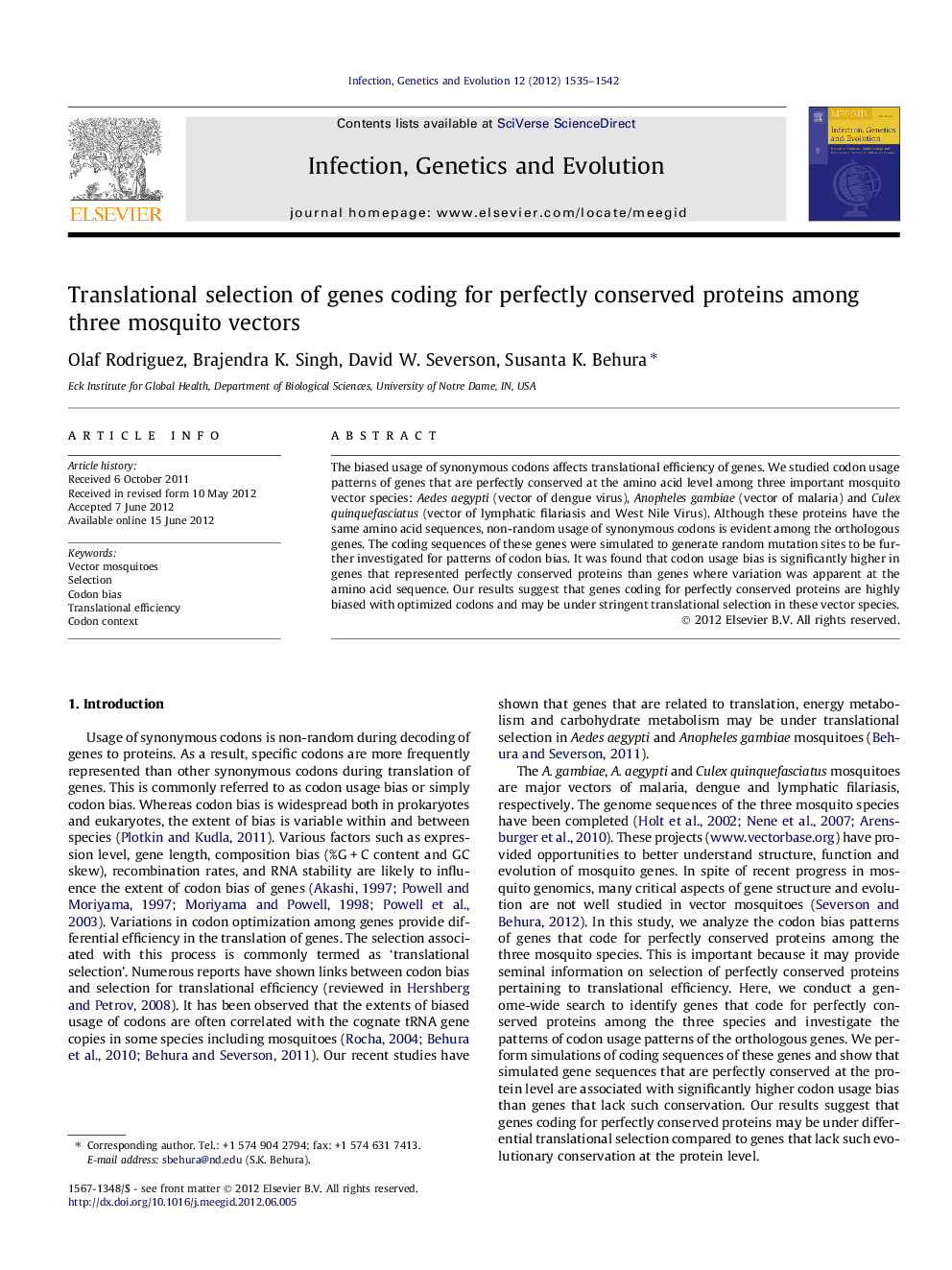| Article ID | Journal | Published Year | Pages | File Type |
|---|---|---|---|---|
| 5910854 | Infection, Genetics and Evolution | 2012 | 8 Pages |
The biased usage of synonymous codons affects translational efficiency of genes. We studied codon usage patterns of genes that are perfectly conserved at the amino acid level among three important mosquito vector species: Aedes aegypti (vector of dengue virus), Anopheles gambiae (vector of malaria) and Culex quinquefasciatus (vector of lymphatic filariasis and West Nile Virus). Although these proteins have the same amino acid sequences, non-random usage of synonymous codons is evident among the orthologous genes. The coding sequences of these genes were simulated to generate random mutation sites to be further investigated for patterns of codon bias. It was found that codon usage bias is significantly higher in genes that represented perfectly conserved proteins than genes where variation was apparent at the amino acid sequence. Our results suggest that genes coding for perfectly conserved proteins are highly biased with optimized codons and may be under stringent translational selection in these vector species.
⺠Genes coding for perfectly conserved proteins among three mosquito species are studied. ⺠These genes have higher codon bias than genes coding for variable protein sequences. ⺠Base composition has significant role in translational selection of these genes. ⺠Codon bias of these genes is unlikely to be related to species evolution. ⺠The neutralist and selectionist theories explain the observed codon bias pattern.
